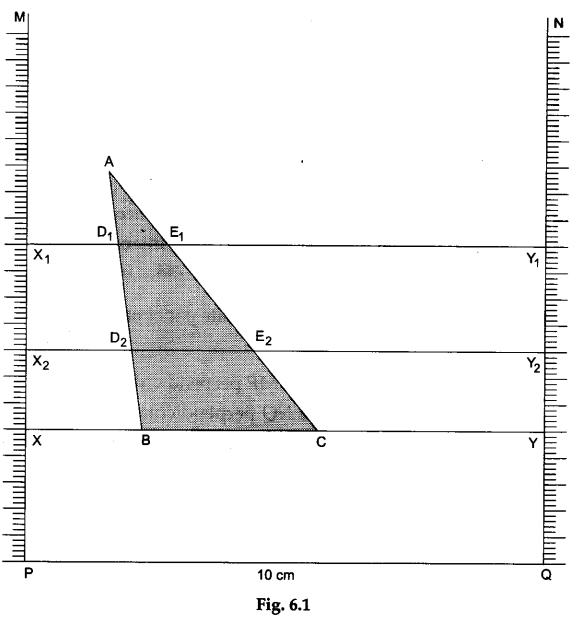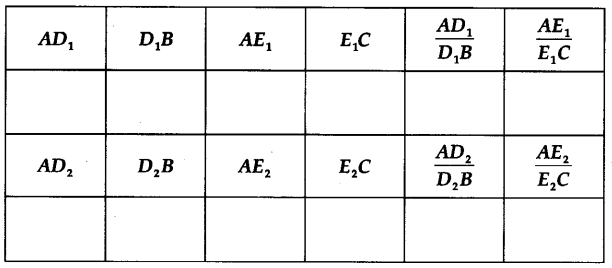Math Labs with Activity – Proportionality Theorem, or Thales Theorem
OBJECTIVE
To verify the basic proportionality theorem, or Thales theorem
Materials Required
- A sheet of whitepaper
- A sheet of colored paper
- A piece of cardboard
- A tube of glue
- A ruler
- A geometry box
Theory
Basic proportionality theorem (or Thales theorem): If a line is drawn parallel to one side of a triangle intersecting the other two sides then the line divides these sides in the same ratio.
Procedure
Step 1: Paste the sheet of white paper on the cardboard.
Step 2: Draw a straight line PQ = 10 cm on this paper. At P draw a line MP perpendicular to PQ and at Q draw a line NQ perpendicular to PQ. Graduate the two lines MP and NQ as shown in Figure 6.1.
Step 3: Draw a line XY parallel to PQ by taking points X and Y at an equal distance from P and Q respectively, and then joining them.
Step 4: Cut a triangle ABC from the colored paper and paste it on the white paper so that its side BC coincides with the line XY as shown in Figure 6.1.
Step 5: Draw two straight lines X1Y1 and X2Y2 both parallel to the line PQ (by the procedure discussed in Step 3), such that the line X1Y1 cuts the sides AB and AC at points D1 and E1 respectively, and the line X2Y2 cuts the sides AB and AC at points D2 and E2 respectively.
Step 6: Measure the lengths of the line segments AD1, D1B, AE1, E1C, AD2, D2B, AE2 and E2C, and record them in the observation table.
rtionality Theorem, or Thales Theorem 3″ width=”288″ height=”66″ class=”alignnone size-full wp-image-95474″ />

Observations and Calculations

Result
We find that

Hence, the basic proportionality theorem, or Thales theorem, is verified.
Remarks: It is important to note that since X1Y1||PQ, X2Y2||PQ and XY||PQ, therefore both the lines D1E1 and D2E2 are parallel to the side BC of the triangle ABC.
Math Labs with ActivityMath LabsScience Practical SkillsScience Labs
